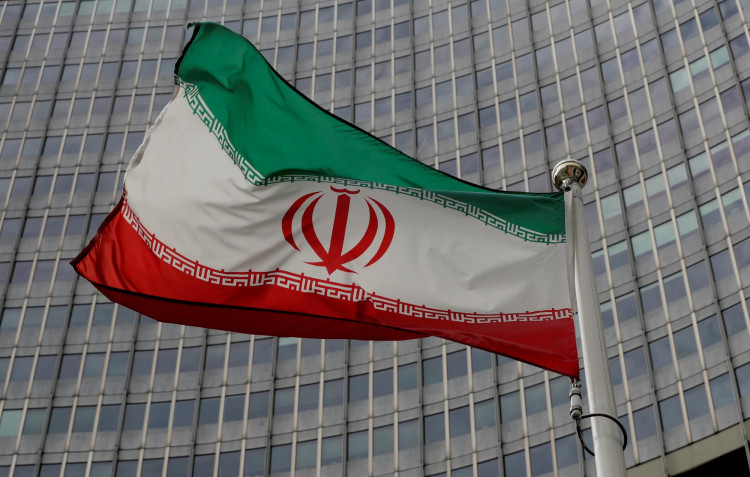Iran's mission to the United Nations in New York issued a statement offering Israel a potential way to prevent further escalation following its launch of three waves of projectiles, including suicide drones, cruise missiles, and ballistic missiles, at the Jewish state on Saturday night.
The attack, which Iran claims was in response to an alleged Israeli strike on its consulate in Damascus that killed seven high-ranking Islamic Revolutionary Guard Corps (IRGC) members, has heightened tensions in the region and raised concerns about the possibility of a wider conflict.
In the statement posted on social media platform X, Iran's UN mission argued that the attack was conducted under Article 51 of the UN Charter, which pertains to legitimate defense, and that the matter could be "deemed concluded." However, the mission also warned that should Israel "make another mistake," Iran's response would be "considerably more severe." The statement emphasized that the conflict is between Iran and Israel, and that the United States "MUST STAY AWAY!"
The incident has drawn international attention, with Israel's Ambassador to the UN, Gilad Erdan, calling on the organization to take action and condemn Iran's violation of the UN charter. Erdan argued that Iran has shown itself to be a threat to global peace and security and urged the UN to "wake up" and make its voice heard.
Iran's adherence to the diplomatic protection of embassies and consulates has been called into question in the past, particularly regarding the U.S. and Israel. The country and its chief strategic ally, the U.S.-designated terrorist movement Hezbollah in Lebanon, have been blamed for numerous attacks on diplomatic facilities, including the 1983 bombing of the U.S. Embassy in Beirut and the dual suicide truck bombings of the barracks housing American and French members of a multinational force in Lebanon the same year.
More recently, an Argentine court determined that Iran, working with its proxy Hezbollah, was responsible for the 1994 bombings of the Asociación Mutual Israelita Argentina (AMIA) and the Israeli embassy in Buenos Aires. The 1979 Iran Hostage Crisis, in which radical Iranian students seized the U.S. embassy in Tehran and held roughly 52 Americans hostage, also serves as a notable example of Iran's disregard for diplomatic norms.
The current escalation in tensions between Iran and Israel comes amid ongoing regional instability and a failed attempt by Russia to condemn Israel for the Damascus strike at the United Nations Security Council. The United States, Britain, and France opposed the statement, arguing that too many facts about the attack remained unclear, and members failed to reach a consensus.
As the situation continues to unfold, the international community is closely monitoring developments and urging restraint from all parties involved. President Biden is being regularly updated on the ongoing situation, while the Israel Defense Forces (IDF) remain on high alert and are "constantly monitoring" the threat.
Iranian Supreme Leader Ayatollah Ali Khamenei has issued numerous threats against Israel since the early April strike that killed multiple IRGC officials, warning that Israel would be "slapped" for its actions. The recent drone and missile attacks on Israel, coupled with Iran's UN mission's statement, underscore the precarious nature of the current situation and the potential for further escalation if diplomatic efforts fail to de-escalate tensions.
As the world watches anxiously, the coming days and weeks will be crucial in determining whether the conflict between Iran and Israel can be contained or if it will spiral into a broader regional confrontation. The United States, as a key ally of Israel, finds itself in a delicate position, with Iran's diplomats warning it to "stay away" from the conflict while also facing pressure to support its longtime partner in the face of Iranian aggression.






